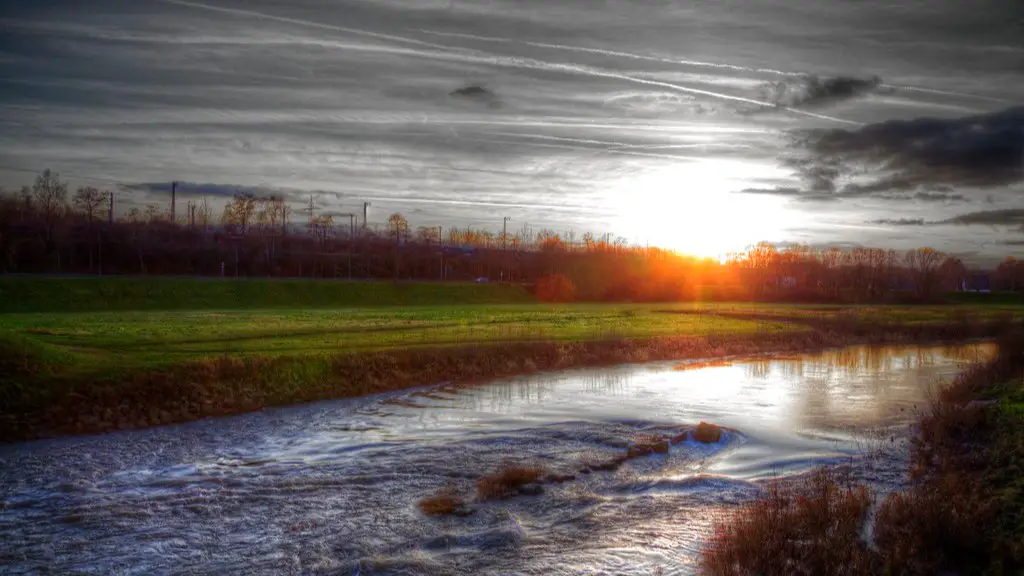Agriculture
The Ancient Egyptians are best known for their successful agriculture and for using the Nile for irrigation. With the flooding of the Nile River coming each year, the Ancient Egyptians were able to use this to their advantage. The intense flooding of the Nile carried with it rich silt that was beneficial to their crops. The flooding was so predictable that the Egyptians were able to start a new harvesting period every year, effectively doubling the amount of food their farms could produce. This enabled the Ancient Egyptians to focus their time and energy on multiple other tactics such as mummification, wall building, and soldier training; thus getting more done in a more efficient manner.
Due to their advantageous relationship with the Nile, the Ancient Egyptians were able to develop multiple cutting-edge irrigation systems and build complex waterworks that diverted the flooding to pool in storage basins for controlled drainage. This allowed for the control of water supply for farmers on demand and reduced the stress of floods on their neighboring villages. With the help of their irrigation systems and other technological advancements, the Ancient Egyptians were able to boost their crop productivity many times over enabling them to feed the population furthering their growth and prosperity.
Trade & Transportation
The Nile River was also an important resource for the Egyptians when it came to trading with other civilizations. Not only did the river serve as a route for the transportation of goods, but it also stimulated the growth of cities along its banks, providing commercial benefits to Egyptian farmers, merchants, and manufacturers. With the ability to travel up the Nile, the Egyptians were able to trade with other civilizations further up river, spreading their wealth and enabling their economy to flourish.
The Nile also served as a source of drinking water and a way to travel quickly and easily. The size and shape of the river allowed the Ancient Egyptians to create large vessels that could carry many Egyptians at a time, making travel both fast and efficient. The vessels also enabled them to move people and goods through difficult terrain where road transport was not available.
Religion
The Nile River was seen as a divine entity by the Ancient Egyptians. The Egyptians saw the Nile as the source of eternal life, as it brought with it fertility and provided sustenance to the people. The Ancient Egyptians paid homage to the Nile in many ways, such as with festivals and with the very location of their cities. The Egyptians placed their temples along the banks of the Nile to give thanks for all the abundance it had given them and held many ceremonies, such as the cult of Isis, that were intended to bring blessings from the gods in the form of increased fertility and wealth.
The Nile was also tied to the religious belief in the afterlife and was essential to the Egyptians’ exploration of death and rebirth. Through the Nile, the Egyptians believed they could reach beyond this world, cross through the underworld, and communicate with the gods. This is why the temples and tombs of the Pharaohs were located by the river, as this was the gateway to the underworld that enabled ancient Egyptians to make their spiritual journey.
Histories & Civilizations
The power of the Nile played a key role in the formation of the Egyptian civilization. When the Ancient Egyptian pharaohs were ruling the lands and looking to add to their empire, the main source of transportation was the Nile River. This enabled the Pharaohs to travel easily and quickly, reaching and controlling many lands that would have been inaccessible without the use of the Nile.
The Nile has also provided an important source of history. Through the passage of time and the silt that the river left behind, the Ancient Egyptians were able to create intricate hieroglyphs, the language of their civilization, which have helped to reveal much of the activities of the Ancient Egyptians. These hieroglyphs have provided invaluable knowledge about the Ancient Egyptians, from the everyday activities of their everyday life to the events of their gods.
Conclusion
The Nile River has been a focal point in Ancient Egyptian life for centuries. It has provided them with resources for sustaining life, for religion, for trade and transportation, for histories and civilizations, and for much more. It is the key to understanding much of what the Ancient Egyptians were able to achieve and without it, the full extent of their greatness would never be fully appreciated. For this reason, the Nile River has remained an important source of life, prosperity and inspiration for the people of Egypt.


